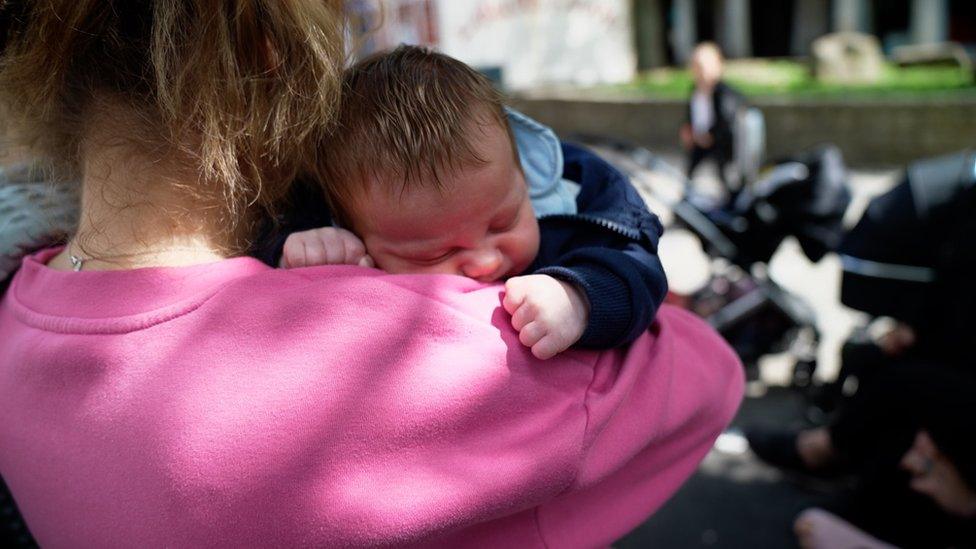English councils spend £1.7bn on housing homeless people
- Published
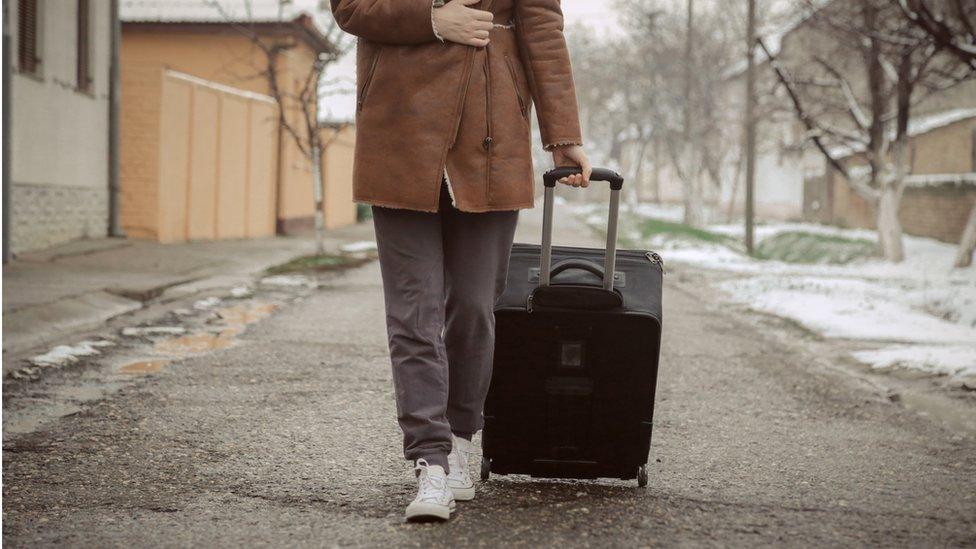
Charity Shelter said the government was throwing money at "grim B&Bs" instead of homing families
English councils spent more than £1.7bn on temporary accommodation for homeless people in the past year, new data shows.
A total of £1.74bn was spent on private accommodation, hostels, refuges, and B&Bs between April 2022 and March 2023.
Housing charity Shelter accused the government of throwing money at "grim B&Bs" instead of homing families.
The government said councils had a duty to ensure no family was "left without a roof over its head".
The figure, published by the Department for Levelling Up, Housing and Communities, is up by about 9% on the previous year, but is a gross figure that does not take into account sales and fees paid to local authorities, along with other council income.
Councils charge fees for rent and energy in their emergency housing, and sometimes they sell their property assets.
When these are accounted for, the cost of temporary accommodation to March was £657m, up from £585m the year before.
B&B accommodation alone accounted for almost £500m in gross costs, up by a third on the previous year of £369m.
Your device may not support this visualisation
Shelter's chief executive Polly Neate said the amount spent on temporary accommodation was not only "outrageous, but it's also illogical".
"We simply can't keep throwing money at grim B&Bs and hostels instead of focusing on helping families into a home," she said.
"Housing benefit should cover the bottom third of local rents but the government has kept it frozen since 2020 while private rents have skyrocketed.
"This decision combined with the decades of failure to build enough social homes has meant that families can't find anywhere affordable to live and as a result are forced into homelessness in cramped and unsuitable temporary accommodation, often miles away from their children's schools and support networks."
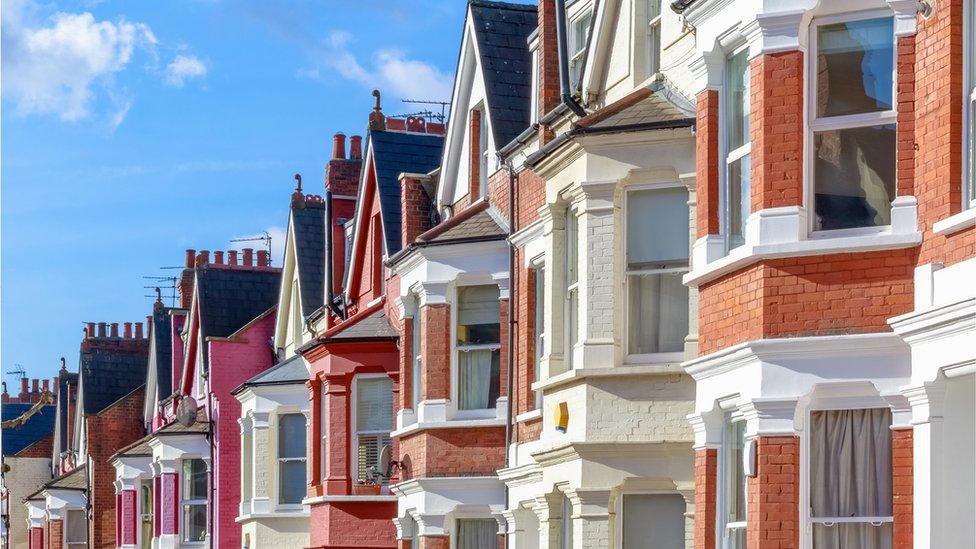
Some 104,510 households were in temporary accommodation by the end of March - a 25-year high
Government statistics released in July showed the numbers of households and children in temporary accommodation in England were at record highs.
The number of children in that situation is at the highest level since records for that measure began in 2004 - with 131,370 children living in temporary accommodation, as of the end of March.
Riverside, a developer of affordable housing which also provides homelessness services and supported housing, said the rise on B&B spending was "sadly not at all unexpected".
John Glenton, its executive director, said the number of people living in temporary accommodation or facing homelessness was "becoming a growing humanitarian crisis in England, particularly for families living together in single-room B&Bs".
Local Government Association housing spokesman Darren Rodwell called for local housing allowance rates to be "urgently reviewed" to make the market more affordable.
He added the government should develop a cross-departmental homelessness prevention strategy, and to give councils powers to build more social homes.
Your device may not support this visualisation
A government spokesperson said: "We are determined to prevent homelessness before it occurs and have given £2bn over three years to help local authorities tackle homelessness and rough sleeping, targeted to areas where it is needed most.
"Councils have a duty to ensure no family is left without a roof over its head and government funding can be used to help people find a new home, work with landlords to prevent evictions, or to pay for temporary accommodation.
"We are already investing in more social and affordable housing and, since 2010, have delivered over 659,500 new affordable homes, including over 166,300 homes for social rent."
Related topics
- Published11 October 2023
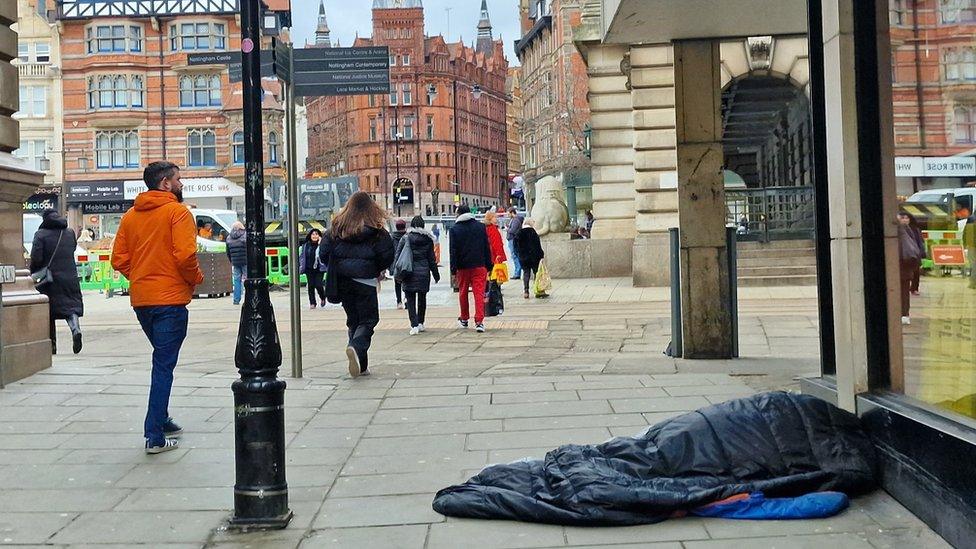
- Published3 October 2023
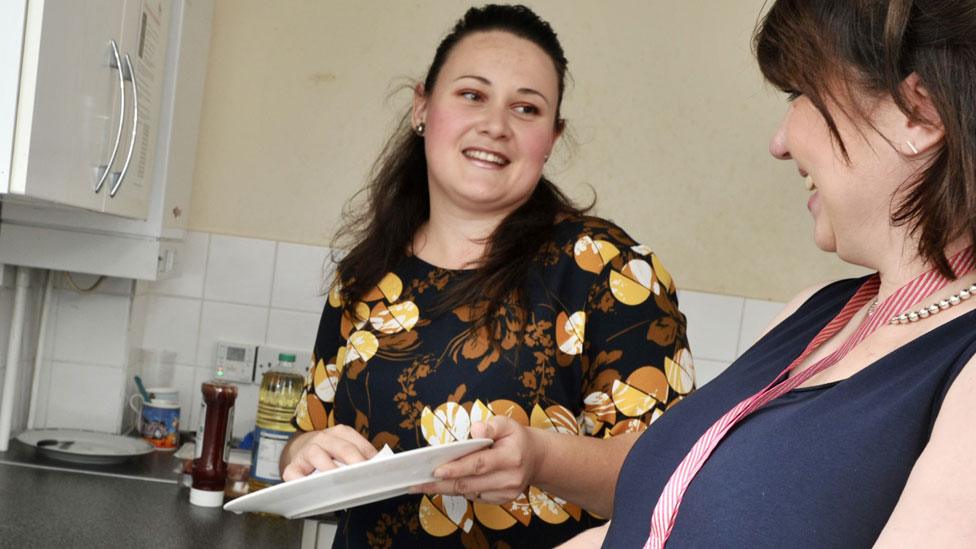
- Published25 July 2023
